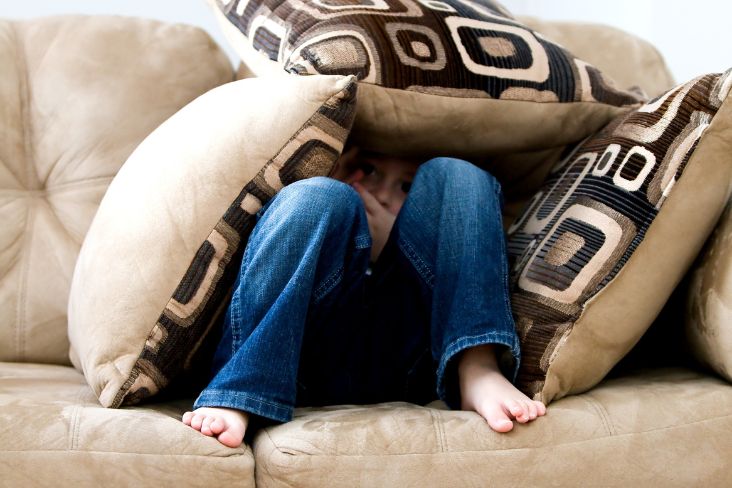
Just as with adults, children moving abroad experience a sense of loss and period of adjustment. Loosely termed culture shock, each child or teen’s adaptation process will be unique to them. Understanding the variables that play a role in this transition can help you set your family up for success. Here are five factors affecting your child’s adjustment after moving to a new country.
1. Age of Children when Moving Abroad
Generally speaking, the older the child at the time of the move, the more challenges they’re likely to experience.
Children under age 4 will have the easiest time adapting to a new language, cultural traditions, foods and weather. Their lives are still largely anchored within the home. In fact, if the child hasn’t transitioned to a school setting yet, the shock will likely be minimal. Further, the social life of a younger child is far less established than that of an older one. Yes, children this age have friends, even “best” friends. But their friendships are anchored more in play rather than the emotional bonds formed between children from age 5 to 11. These kids are also more likely to have daily routines and relationships independent from the family unit. Moving children abroad takes them away from all the friends, activities and achievements they associate with home.
As you might guess, an international move can be a much harder process during adolescence. Teens lives are anchored in their social world. Forming connections to people as well as exploring interests are the means by which they build their emerging sense of identity. Differences in musical tastes, fashion styles and what’s considered “fun” will leave them nostalgic for friends, sports and hobbies left behind.
2. Personality Style and Personal Strengths
Personality traits such as sociability, emotional sensitivity and level of activity also influence how a child adapts after moving.
Outgoing children with well developed social skills are more likely to make friends in their new cultural setting. However, such children may also suffer more frustration if they do face troubles in this regard. Why? Because it runs counter to their previous success relating to people.

Not surprisingly, shy children are more susceptible to the social withdrawal risks of culture shock. Yet ironically, sometimes moving shy children to a completely new environment allows them thrive. They open up in a way they were never able to do before, and experiencing a level of friendship and belonging they didn’t have previously.
Emotional tendencies also impact how a child manages culture shock. The reality is that some children are just wired to be more resilient. They’ll adapt more easily compared to children who innately don’t cope well with change.
Kids who tend towards positive thinking and who manage emotions well will also fare better than kids who tend towards negative thinking or who struggle with emotions like fear and anger. Even energy levels play a role in a child’s adaptation process. More active kids, generally speaking, integrate new stimuli more rapidly compared to their less active peers, supporting acceptance of the changes in their environment.
3. The Reasons for Moving Abroad
The reasons causing you to move greatly affect children’s receptivity to their new circumstances, regardless of age or other personality traits.
Children from families moving abroad for an improved quality of life — better schools for the kids or job opportunities for the parents — will experience less difficulties than those whose families are moving to escape a dangerous, insecure or stressful situation. Similarly, children from families looking to experience a family adventure abroad will have an easier time of it. In general, the greater the child’s perception of security, stability and reward, the less challenges the child will have.

4. Participation in Decision-Making
Allowing children some input into moving related decisions will support their transition. This will be especially true for adolescents. Having some say in matters that affect them will support their burgeoning autonomy and foster a sense of control and security.
Of course, the parents need to make key decisions that are beyond a child or teen’s understanding. But, where possible, allowing your child to participate in the decision making process will support their receptivity to the changes in their life. Listen to their opinions about homes you’re considering. If they’re old enough, allow them to tour schools with you and take in their feedback. Which one do they think would be better for them? This kind of collaboration might even instill some excitement about their move abroad.
Along these lines, try to preview as much as possible in advance. If you’ve already found a home, show them photos. Virtually walk the streets of your new neighborhood using Google maps. Introduce some of the new foods awaiting them before you arrive. Upping their knowledge of what’s to come will lessen intensity of the changes in store.
5. Family Make Up and Parenting Style
A child from a multicultural family will more readily adapt to cultural differences. Having been exposed to more than one culture within their home environment, these children intuitively understand different cultures do things differently. They also may have traveled more internationally and might already be exposed to more than one language. These circumstances make them more flexible to the changes brought on by an international move.
Parenting style also plays a significant impact on a child’s transition to a new country. Children from families with rigid rule setting that limits a child’s autonomy and expression of feelings will have a more difficult time compared to kids from more families with more flexible family dynamics. The parents are always the leaders, but children in this setting are encouraged to express their needs and desires. They’re also encouraged to explore their autonomy. The safety of their family unit permits them to freely feel and process the insecurities and emotions that arise from their new life situation.
What These Variables Mean for Your Family Move Abroad
In one way or another, these five factors play a role in how easily a child adapts after moving to a foreign country. Yet there are no hard and fast rules that will dictate what happens. Hopefully, understanding these elements will help you support your children’s needs.
Think of your child as a brain that needs trust, a heart that needs love and a soul that needs peace. It’s completely normal, as a parent, to fear witnessing your children struggle. But worrying about moving abroad won’t help. You only need to be there, sharing your own perceptions, normalizing the strangeness by talking about difficult situations openly and without fear.
Remember, confronting these kinds of challenges is part of what makes moving to a foreign country such an opportunity for growth. It opens the door for a child — or person of any age for that matter — to discover strengths, abilities and qualities within themselves they would never have the chance to see or develop. And that is a gift that last a lifetime.
Have you observed any of these factors in play when you moved your family to a foreign country? If you’re still in the planning stages of moving your children abroad, do you have particular concerns about how some of these variables will affect your child? Share your comments with me here.

Irene Paola Garza Del Valle ~ Integrative Psychotherapy ~ Specializing in expats and multicultural couples and families
Born and raised in Mexico, I now live in Seville, Spain. I have counseled people from 11 countries and 5 continents both in person and virtually. Visit me at
mentesequilibrio.wixsite.com/mentesenequilibrio ~ www.facebook.com/mentesenequilibrio ~ www.youtube.com/channel/UCYZuuVPNlY3BjICCiyPplmA